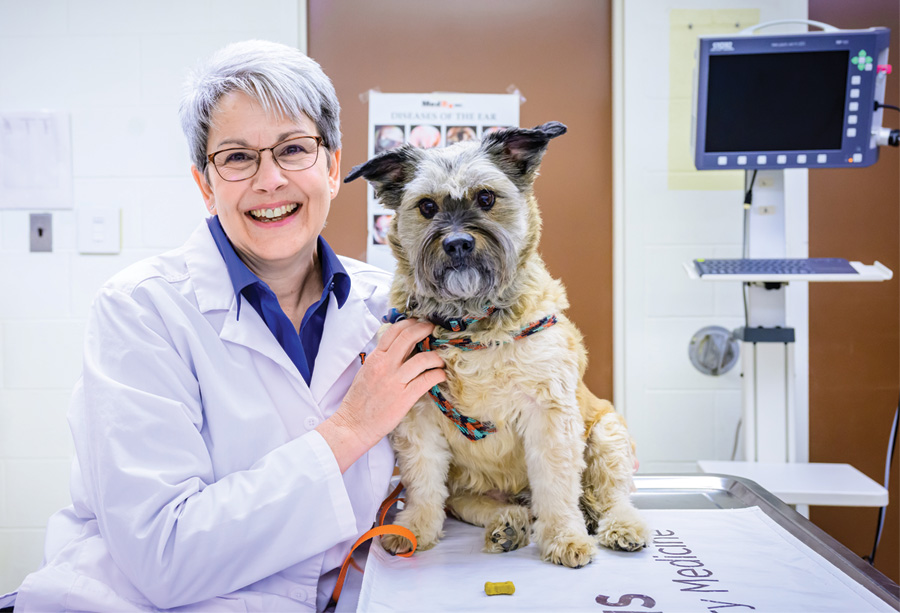Dr. Patrick Barko is an assistant professor in the small animal internal medicine service.
Tell us about your background.
I grew up in the suburbs of Detroit, Michigan, and my family moved to Phoenix, Arizona, when I was a freshman in high school. After high school, I was unsure of my career path and worked in a welding shop before taking a job cleaning cages at a local veterinary clinic. This was my first exposure to veterinary medicine, other than taking our family pets to the vet.
I was inspired by how the veterinarian I worked for was able to use his scientific knowledge to help pets and people in the community. Though I had never considered becoming a veterinarian, I started to think it might be a good option for me.
I enrolled in community college, progressed to Northern Arizona University, then moved to Washington State University. There I earned both an undergraduate degree in molecular biosciences and a veterinary degree. Then I completed an internship and residency in small animal internal medicine here at the University of Illinois.
In May 2024, I completed a PhD focused on investigating the role of the intestinal microbiome in chronic gastrointestinal and pancreatic disorders in dogs and cats. I joined the faculty as an assistant professor in November 2023.
What drew you to small animal internal medicine?
I became interested during my third year of veterinary school because of an influential professor. What I love most about it is that it requires integration of knowledge from diverse disciplines – clinical pathology, diagnostic imaging, immunology, infectious diseases, endocrinology, etc. You never know what a day in small animal internal medicine will bring.
Tell us about a favorite case of yours.
It’s difficult to pick a favorite from the many cases I have been involved with, but I have two favorite types of patients. First, I enjoy diagnosing and managing chronic gastrointestinal disorders. These diseases are complex and not well understood, so I am also happy to contribute to research efforts to better understanding them. I also appreciate that, despite the complexity of these cases, many patients can be treated successfully with nutritional therapy alone.
Second, I am a cat enthusiast, and geriatric cats are among my favorite patients. Older cats experience several health problems, including chronic gastrointestinal diseases, chronic kidney disease, and hyperthyroidism. These conditions can significantly impact quality of life, but with proper management, geriatric cats can live full and happy lives. Finally, I appreciate their spirited and independent nature. Earning respect from a grumpy old cat is very rewarding.
What are your special interests inside or outside of the clinic?
My special clinical interests are mostly related to gastroenterology. I also enjoy teaching in a clinical setting. My favorite moments are when I can help students, interns, and residents work through challenging cases and learn how to apply their scientific and medical knowledge to diagnose and treat patients.
Outside of the clinic I have many hobbies and interests. My wife and I love to ski in the winter and bicycle, hike, and camp in the warmer months. At home I enjoy cooking and learning new recipes and culinary techniques. My wife and I frequently travel to experience different cultures around the world. Finally, I listen to lots of music, play guitar, and try to see as much live music as possible.



